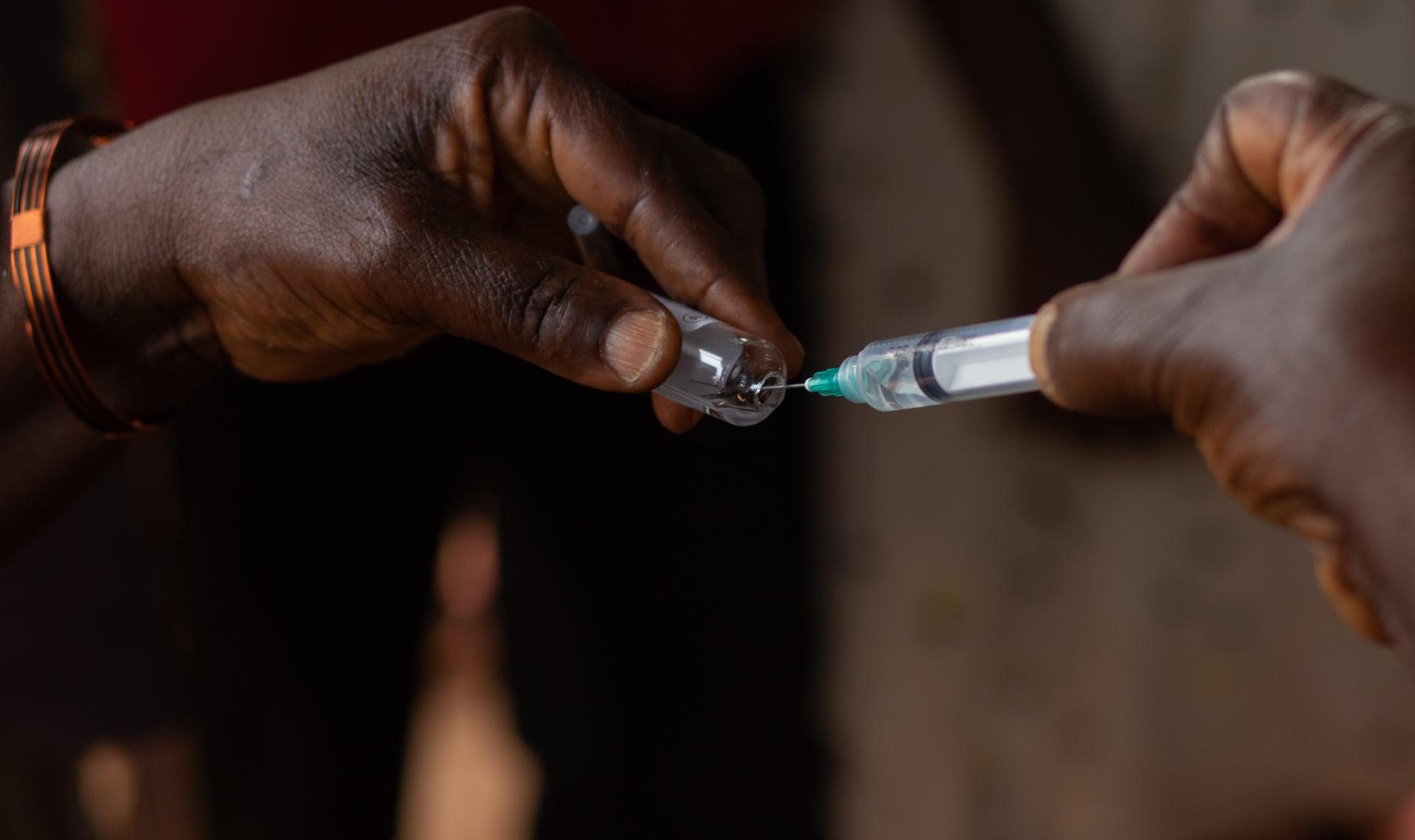South Sudan: Measles outbreak 90% of children unvaccinated
A measles crisis is mounting in South Sudan’s Western Equatoria state, just as health authorities struggle to overcome an outbreak of yellow fever. Since February, 7 deaths among children under five and 460 cases have been recorded as of March 24th in three health facilities in Yambio and Nzara counties; 90 per cent of these children had never been vaccinated against the disease.
With measles cases on the rise and vaccination coverage alarmingly low, international medical organisation Doctors Without Borders (MSF) urges health authorities and the World Health Organization (WHO) to launch an immediate vaccination campaign to prevent the disease from spreading further.
“When my child fell sick, he was having high fever, diarrhoea and cough. While at home, I gave him Paracetamol, but there was no improvement. We then brought him to the MSF facility, where he received treatment for three days. If I didn’t come to the facility, I know my child was going to die,’’ said Victoria John, mother of one-and-a-half-year-old Mark Emmanuel, suffering from measles.
Measles has become a persistent emergency in South Sudan, with recurring outbreaks challenging healthcare systems and endangering communities.
.jpg)
To respond to this emergency, MSF teams are treating measles in Nzara and Yambio Counties via Gangura and Sakure health centres, as well as at Yambio State Hospital. Our team intends to increase the number of beds for measles patients from 32 to 40 due to the rapidly increasing number of measles cases. MSF is also intervening in the community to look for children with potential measles symptoms and refer them to health facilities.
Twenty per cent of children treated for measles at MSF-supported facilities are over the age of five, highlighting the need for a reactive vaccination campaign to reach this group of older children who did not receive measles vaccinations as part of the existing expanded immunisation programme (EPI).
The measles outbreak is a double blow for a region still struggling to deal with yellow fever after the most recent outbreak – the fourth in just six years – was declared by health authorities in December 2023. As of mid-March, 81 cases of yellow fever, including three confirmed ones, and six deaths have been recorded. The Ministry of Health, in collaboration with WHO, launched a yellow fever vaccination campaign, immunising around 357,000 people across three counties of Western Equatoria state. The campaign resulted in a reduction in the number of suspected and confirmed cases – a testament to the efficacy of mass vaccination campaigns.
.jpg)
“Large-scale vaccination campaigns are vital, both in Western Equatoria state and Northern Bahr el Ghazal state where the current measles outbreaks are ongoing, to halt further spread of the disease and prevent any more outbreaks. South Sudan’s fragile health system cannot bear the burden of recurrent outbreaks,” says MSF head of mission Zakaria Mwatia.
Low vaccination coverage in South Sudan has a significant impact on the population, particularly children, who are highly vulnerable to diseases such as measles, which can lead to serious health complications and deaths. Given the gravity of the health threats posed by both measles and yellow fever, MSF calls for increased efforts to raise community awareness about the diseases and to adopt best practices to stop them from spreading.
.jpg)
“It is imperative that the Ministry of Health and other health organisations, including WHO, intensify their efforts to expand vaccination coverage across the country and especially those areas most prone to disease outbreaks,” urges MSF head of mission Zakaria Mwatia.
More MSF activities in South Sudan
About Doctors Without Borders (MSF)
Doctors Without Borders (MSF) is a global network of principled medical and other professionals who specialise in medical humanitarian work, driven by our common humanity and guided by medical ethics. We strive to bring emergency medical care to people caught in conflicts, crises, and disasters in more than 70 countries worldwide.
In South Africa, the organisation is recognised as one of the pioneers in providing antiretroviral treatment (ART) in the public sector. It started the first HIV programme in South Africa in 1999. Until today, the focus of MSF’s interventions in the country has primarily been on developing new testing and treatment strategies for HIV/AIDS and TB in Eshowe (Kwa-Zulu Natal) and Khayelitsha (Western Cape).
In Tshwane, we run a migration project, and we offer medical and psychosocial care to migrants, refugees, and asylum seekers who struggle to access public health services under South Africa’s increasingly restrictive.
Previously, we offered free, high-quality, confidential medical care to survivors of SGBV in Rustenburg.
To learn more about our work in South Africa, please visit this page on our website (www.msf.org.za). To support MSF’s work:
- SMS “JOIN” to 42110 to donate R30 Once-off
- Visit https://www.msf.org.za/donate